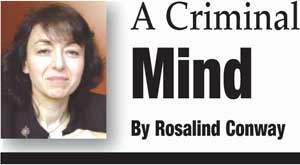June 30 was to have been the deadline for submissions to the McCamus Legal Aid Review, but with the appointment of professor John McCamus as the new chairman of Legal Aid Ontario, the review has, at least temporarily, moved to the back burner.

In Ottawa, the County of Carleton Law Association is preparing a submission for the review, and the Defence Counsel Association of Ottawa has just filed one.
A decade ago, McCamus brought out his “Blueprint for Publicly Funded Legal Aid Services.” That study signaled the end of the old Ontario Legal Aid Plan, and heralded the era of Legal Aid Ontario. Legal aid was no longer supervised by the Law Society of Upper Canada, but was controlled by a government agency.
Some lawyers miss those days. While the law society had control of the plan, it was funded not just by the province and the federal government, but also by lawyers; the Law Foundation collected interest from trust accounts and remitted them to the plan.
Although the need for more government funding is a given, the Defence Counsel Association of Ottawa’s submission recommends seeking the renewed financial support of the law society through the interest earned on trust accounts.
The DCAO document, submitted by president Mark Ertel, makes many concrete recommendations. Some are increases to the number of hours allotted to various criminal items.
Instead of a total of two hours for a Charter application, it suggests that six hours be permitted to prepare the application. Instead of the almost impossible two hours for a bail hearing, six hours are recommended.
Time-consuming bail variations, which are “included” in the number of hours allowed for cases, but which are critical in domestics, would attract four hours under the DCAO submission. Bail reviews, which are appeals with all the attendant paperwork, are presently allowed only five hours: 10 hours are recommended.
The Ontario legal aid tariff has discouraged settling cases, partly by only allowing one judicial pre-trial per file (effective April 2007, a second pre-trial has been permitted in Superior Court), but also by not separately recognizing counsel pre-trials, which are included in the total number of hours allowed for the file. The DCAO’s proposal suggests that the number of judicial pre-trials not be limited, and that in each case one counsel pre-trial be allowed.
One of the most interesting recommendations is to create a fourth tier, at 15 years of experience, within the tariff system. Presently, lawyers reach their highest seniority and rate of pay after 10 years, with a 25-per-cent increase.
Because the rate of pay is then frozen (the highest rate is presently $96.95), senior counsel are discouraged from taking on murders and other serious matters. The DCAO suggests that tier 4 lawyers, and all lawyers who have been approved to take on extremely serious criminal matters, receive a 40-per-cent increase over the base rate.
Many lawyers in Ottawa and elsewhere feel the lack of a regular review mechanism has been the most serious problem with LAO. There are no built-in cost-of-living or inflationary allowances, even though there have been three publicly funded reviews: McCamus’ Blueprint in 1997, the Justice Fred Kaufman and Robert Holden report in 2000 and Justice Sidney Linden’s business case in 2001.
Recommended rates in these reviews varied from $85 to $105 per hour for junior lawyers, to $105 to $140 for senior lawyers. These still far exceed the new rates paid effective April 2007 of $77.56 for junior lawyers and $96.95 for the most senior.
Is it a good thing that McCamus has been appointed LAO chairman, just as the deadline was closing for submissions? He is viewed as being open to the concerns of the private bar. Ten years ago, he wrote in his Blueprint, “The legal aid authority should continue to seek a high level of co-operation and participation from the private bar in relation to the delivery of criminal legal aid services.”
Although the mandate of the old McCamus review was working within a capped budget, Ontario’s main delivery model remains the private bar and the certificate model, and capping funding doesn’t work.
During his three-year term, it is hoped that McCamus can use his not-inconsiderable influence to address the greatest problems that LAO faces: underfunding and the lack of a review mechanism, so that the defenders of the poor don’t become poor themselves.
Rosalind Conway practises criminal law in Ottawa. She can be reached at [email protected]

 In Ottawa, the County of Carleton Law Association is preparing a submission for the review, and the Defence Counsel Association of Ottawa has just filed one.
In Ottawa, the County of Carleton Law Association is preparing a submission for the review, and the Defence Counsel Association of Ottawa has just filed one.